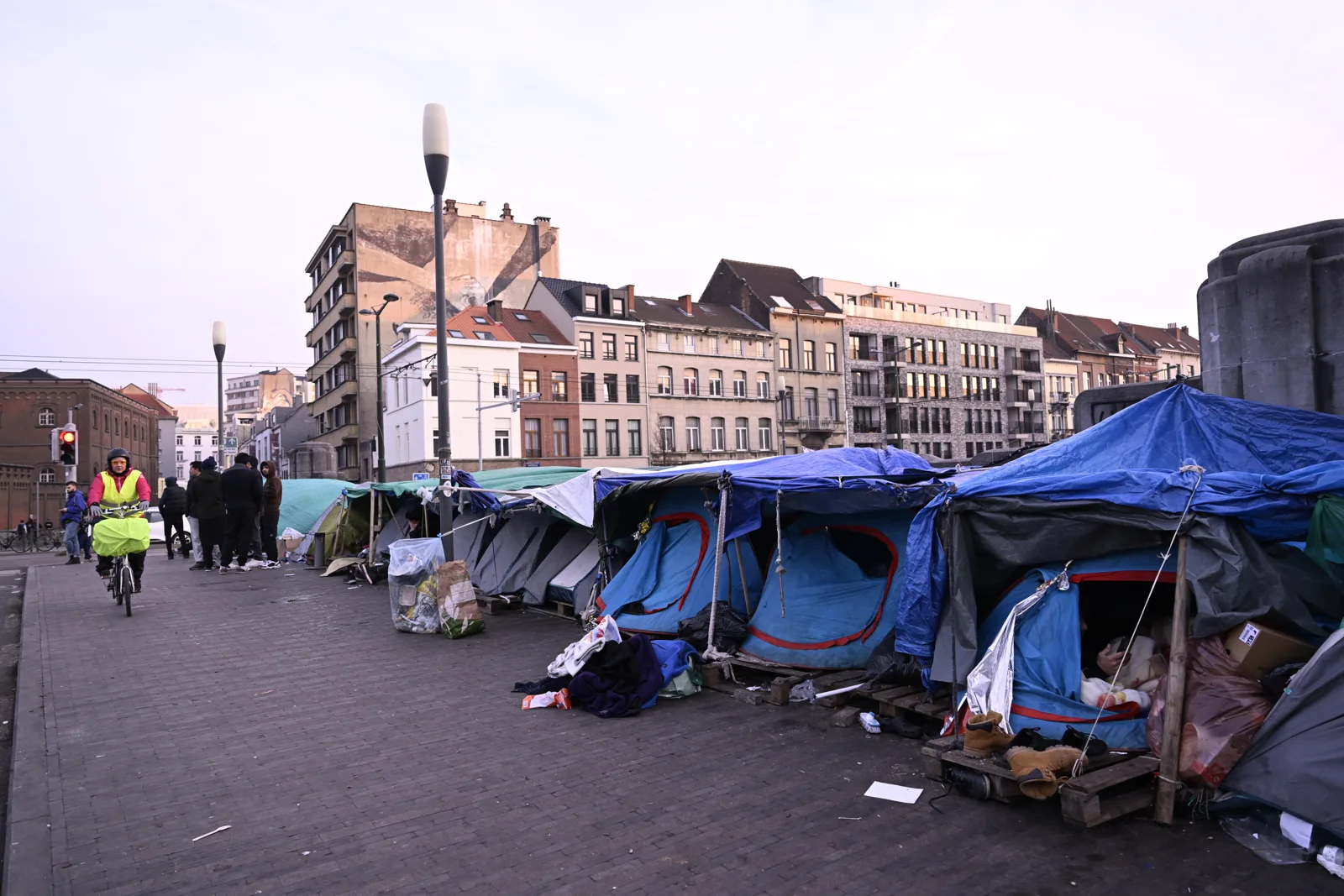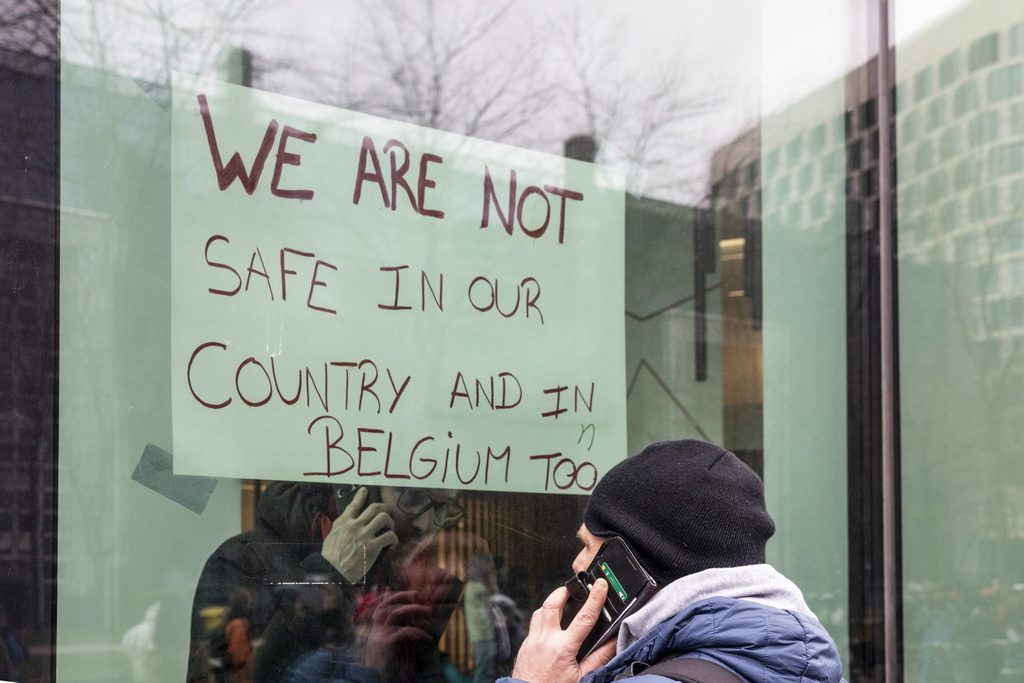In an unprecedented action, several Belgian NGOs have been authorised to seize €2.9 million from the accounts of Belgium's agency for asylum reception, Fedasil, for the "ongoing violation of basic rights of people seeking asylum".
Since the start of the reception crisis in the autumn of 2021, Fedasil and the State of Belgium have been condemned almost 10,000 times by various courts both in Belgium and on the European level for failing to offer asylum seekers the reception they are legally entitled to.
But these multiple convictions have had no effect and fines imposed by the courts have never been paid, a denial of justice that according to the collective presents "a danger to the foundations of our democracy". Faced with the refusal to either pay up or provide shelter, asylum seekers' lawyers have since last year taken other legal action, including seizing furniture and other property from ministerial cabinets.
But this week, a court ruled that a group of Belgian NGOs are entitled to recover the full amount of the fines imposed on Fedasil for "each day that reception was not offered to asylum seekers". This accumulated sum amounts to €2.9 million and marks an unprecedented move in a crisis that has lasted almost two-and-a-half years.
"This money will be used on the ground to make up for the government's inaction over the past two years," the collective said in a statement. The news comes days after a law firm seized €400,000 in assets from the Belgian State to ensure compliance with court rulings.
'Cannot ignore rules'
Initially, the money will be used to extend the aid offered by civil society organisations such as funding sleeping equipment, food distribution, and legal and psychological support. Then, depending on the sums that are actually received, they will consider using it for emergency hotel accommodation.
The organisations noted that this crucial outcome also serves to uphold the rule of law. "By doing so, the organisations send the message that a government cannot simply ignore the laws and rulings of this country's courts with impunity."

Asylum seekers and refugees sleep on the street in Brussels. Credit: Belga
While the court ruling can be considered a victory, the situation on the ground remains dire. Some 3,055 people are still on the waiting list to receive a sheltered place, while the government is closing reception centres. "These closures make the situation for asylum seekers forced to stay on the streets even more distressing and hopeless."
The associations behind the class action include CIRÉ, BelRefugees, Vluchtelingenwerk Vlaanderen, Médecins du Monde, Ligue des droits humains, the French and German-speaking Bar Association, Association pour le droit des étrangers (ADDE), SAAMO Bruxelles, and NANSEN, a Belgian organisation specialising in refugee law.
They once again called on the government to launch the dispersal plan that would require every municipality to provide shelter to a certain number of people. "If each municipality takes in an additional five people, this reception crisis is solved."
State Secretary for Asylum and Migration Nicole de Moor (CD&V) said that Fedasil will appeal the court order and argued that this move endangers Fedasil's ability to help asylum seekers.
However, this was refuted by Thomas Willekens of Vluchtelingenwerk Vlaanderen, who said that the NGOs' attachment procedure wants to push the government to do better. "This does not jeopardise the functioning of Fedasil, that is not how attachment proceedings work."

